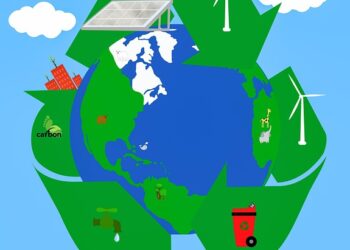Breaking News: The Latest US Climate Policy Updates Revealed
Climate change is one of the most pressing issues facing our planet today, and the United States has been at the forefront of discussions and debates surrounding this topic. Recently, there have been some significant updates to US climate policy that are worth noting. In this article, we will delve into the latest developments in US climate policy, discuss the implications of these updates, and address common questions that may arise. Let’s dive in!
Overview of US Climate Policy
Before we delve into the latest updates, it’s important to have a basic understanding of US climate policy. The US has historically been a major contributor to greenhouse gas emissions, primarily due to its reliance on fossil fuels for energy production. In recent years, there has been a shift towards more sustainable and renewable sources of energy, as well as increased awareness of the need to reduce emissions to combat climate change.
New Developments in US Climate Policy
One of the most significant updates to US climate policy is the Biden administration’s commitment to rejoin the Paris Agreement. The Paris Agreement is an international treaty that aims to limit global warming to well below 2 degrees Celsius above pre-industrial levels, with a target of 1.5 degrees Celsius. By rejoining the agreement, the US is signaling its commitment to reducing greenhouse gas emissions and combating climate change on a global scale.
In addition to rejoining the Paris Agreement, the Biden administration has also announced a series of ambitious climate goals. These goals include achieving net-zero greenhouse gas emissions by 2050, investing in clean energy infrastructure, and creating millions of jobs in the renewable energy sector. These initiatives are aimed at not only reducing emissions but also stimulating economic growth and creating a more sustainable future for generations to come.
Implications of the Updates
The latest updates to US climate policy have far-reaching implications for both the environment and the economy. By rejoining the Paris Agreement and setting ambitious climate goals, the US is signaling its commitment to leading the fight against climate change. This will likely have a ripple effect on other countries, encouraging them to also take action to reduce emissions and transition to a more sustainable energy system.
From an economic perspective, the investment in clean energy infrastructure and the creation of millions of jobs in the renewable energy sector will have a positive impact on the US economy. Renewable energy has been growing rapidly in recent years, and this trend is expected to continue as more countries and companies shift towards cleaner sources of energy. By investing in clean energy, the US can position itself as a leader in this growing industry and create new opportunities for job growth and economic development.
Common Questions About US Climate Policy
What are the key components of US climate policy?
The key components of US climate policy include reducing greenhouse gas emissions, transitioning to clean energy sources, investing in sustainable infrastructure, and promoting energy efficiency. These initiatives are aimed at mitigating the impacts of climate change and transitioning to a more sustainable energy system.
How will the US achieve net-zero emissions by 2050?
Achieving net-zero emissions by 2050 will require a combination of policies and initiatives, including investing in renewable energy, increasing energy efficiency, implementing carbon pricing mechanisms, and transitioning away from fossil fuels. By taking a comprehensive approach to reducing emissions, the US can work towards achieving its climate goals in a cost-effective and sustainable manner.
What role do individuals play in US climate policy?
While government policies and initiatives are crucial in addressing climate change, individuals also have a role to play in reducing emissions and promoting sustainability. By making small changes in their daily lives, such as using energy-efficient appliances, reducing waste, and supporting renewable energy, individuals can contribute to the overall effort to combat climate change.
Conclusion
The latest updates to US climate policy signal a renewed commitment to combating climate change and transitioning to a more sustainable energy system. By rejoining the Paris Agreement and setting ambitious climate goals, the US is taking a leading role in the fight against climate change and inspiring other countries to follow suit. The implications of these updates are far-reaching, with potential benefits for both the environment and the economy. As we move forward, it’s important for individuals to stay informed and engaged in the conversation surrounding climate policy, as we all have a role to play in creating a more sustainable future for generations to come.
Overall, the latest US climate policy updates are a step in the right direction towards a more sustainable and resilient future for our planet. Let’s continue to work together towards a greener, cleaner, and more sustainable world for all.












